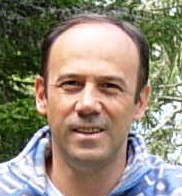Studying at the University of Verona
Here you can find information on the organisational aspects of the Programme, lecture timetables, learning activities and useful contact details for your time at the University, from enrolment to graduation.
Academic calendar
The academic calendar shows the deadlines and scheduled events that are relevant to students, teaching and technical-administrative staff of the University. Public holidays and University closures are also indicated. The academic year normally begins on 1 October each year and ends on 30 September of the following year.
Course calendar
The Academic Calendar sets out the degree programme lecture and exam timetables, as well as the relevant university closure dates..
| Period | From | To |
|---|---|---|
| First semester bachelor degree | Sep 16, 2019 | Jan 10, 2020 |
| Second semester bachelor degree | Feb 17, 2020 | Jun 5, 2020 |
| Session | From | To |
|---|---|---|
| First semester intermediate tests | Nov 4, 2019 | Nov 8, 2019 |
| Winter exam session | Jan 13, 2020 | Feb 14, 2020 |
| Second semester intermediate tests | Apr 15, 2020 | Apr 17, 2020 |
| Summer session exam | Jun 8, 2020 | Jul 10, 2020 |
| Autumn Session exams | Aug 24, 2020 | Sep 11, 2020 |
| Session | From | To |
|---|---|---|
| Autumn Session | Dec 2, 2019 | Dec 4, 2019 |
| Winter Session | Apr 7, 2020 | Apr 9, 2020 |
| Summer session | Sep 7, 2020 | Sep 9, 2020 |
Exam calendar
Exam dates and rounds are managed by the relevant Economics Teaching and Student Services Unit.
To view all the exam sessions available, please use the Exam dashboard on ESSE3.
If you forgot your login details or have problems logging in, please contact the relevant IT HelpDesk, or check the login details recovery web page.
Academic staff
 roberto.fini@univr.it
roberto.fini@univr.it
 martina.menon@univr.it
martina.menon@univr.it
 francesca.rossignoli@univr.it
francesca.rossignoli@univr.it
 0444 393941 (Ufficio Vicenza) 0458028261 (Ufficio Verona)
0444 393941 (Ufficio Vicenza) 0458028261 (Ufficio Verona)
Study Plan
The Study Plan includes all modules, teaching and learning activities that each student will need to undertake during their time at the University.
Please select your Study Plan based on your enrollment year.
1° Year
| Modules | Credits | TAF | SSD |
|---|
2° Year activated in the A.Y. 2020/2021
| Modules | Credits | TAF | SSD |
|---|
3° Year activated in the A.Y. 2021/2022
| Modules | Credits | TAF | SSD |
|---|
| Modules | Credits | TAF | SSD |
|---|
| Modules | Credits | TAF | SSD |
|---|
| Modules | Credits | TAF | SSD |
|---|
| Modules | Credits | TAF | SSD |
|---|
Legend | Type of training activity (TTA)
TAF (Type of Educational Activity) All courses and activities are classified into different types of educational activities, indicated by a letter.
Microeconomics (2020/2021)
Teaching code
4S00239
Academic staff
Coordinator
Credits
9
Also offered in courses:
- Microeconomics of the course Bachelor's degree in Business Administration (Vicenza)
Language
Italian
Scientific Disciplinary Sector (SSD)
SECS-P/01 - ECONOMICS
Period
primo semestre (lauree) dal Sep 28, 2020 al Dec 23, 2020.
Learning outcomes
This unit should enable students to understand how firms and consumers take their decisions and how markets are organized. Recent developments in economic theory, useful to prepare students for applied economic courses, will also be presented. The teaching methods adopted consist of lectures and exercise classes. By the end of this course, students will know how to apply the toolbox of microeconomics to analyze markets and consumers’ and firms’ behavior.
Program
Textbook: "Microeconomia" by Hal R. Varian, Cafoscarina, 2011.
Additional material is available on the e-learning website.
A. Consumer Theory:
• Budget constraint (Varian, Chapter 2).
• Preferences and indifference curves (Varian, Chapter 3).
• Utility (Varian, Chapter 4).
• Choice (Varian, Chapter 5).
• Demand (Varian, Chapter 6).
• Slutsky equation (Varian, Chapter 8).
• Exchange (Varian, Chapter 9).
• Intertemporal choice (Varian, Chapter 10).
• Choice under uncertainty (Varian, Chapter 12).
• Consumer's Surplus (Varian, Chapter 14).
• Market demand and elasticity (Varian, Chapter 15).
• Equilibrium (Varian, Chapter 16).
B. Production Theory:
• Technology (Varian, Chapter 18).
• Profit maximization (Varian, Chapter 19).
• Cost minimization (Varian, Chapter 20).
• Cost Curves (Varian, Chapter 21).
• Perfect competition in the short and the long term (Varian, Chapters 22 and 23).
• Monopoly (Varian, Chapter 24).
• Monopolistic behaviour (Varian, Chapter 25).
• Oligopoly (Varian, Chapter 27).
C. Game theory
• Game theory (Varian, Cap. 28)
• Game theory applications (Varian, Cap. 29)
-----teaching method------
Lectures will be online on Mondays and Tuesdays and blended on Thursdays. Students willing to participate to lectures on Thursdays are kindly asked to book a place via the dedicated App. Further info can be found on the e-learning webpage of the course.
| Author | Title | Publishing house | Year | ISBN | Notes |
|---|---|---|---|---|---|
| Cipriani G.P., Fioroni T. | Esercizi di Microeconomia (Edizione 4) | Giappichelli | 2020 | 9788892109308 | |
| Varian H. | Microeconomia (Edizione 8) | Cafoscarina | 2011 | 9788875433079 |
Examination Methods
The exam will be online. It is composed by a written and an oral part. The final grade will be the average between the grades of the written and oral parts.
Written part
- Multiple choice test composed of 15 questions. The test will be implemented via Moodle quiz and will be performed in streaming via Zoom.
- +2 points per correct answer, 0 points for each unanswered question or wrong answer.
- The written part lasts 60 minutes.
Oral part
- Students must pass the written part with a grade of at least 18 to access to the oral part. The oral exam will also be via Zoom.
- The oral part will last approx. 15 minutes.
Type D and Type F activities
Nei piani didattici di ciascun Corso di studio è previsto l’obbligo di conseguire un certo numero di crediti formativi mediante attività a scelta (chiamate anche "di tipologia D e F").
Oltre che in insegnamenti previsti nei piani didattici di altri corsi di studio e in certificazioni linguistiche o informatiche secondo quanto specificato nei regolamenti di ciascun corso, tali attività possono consistere anche in iniziative extracurriculari di contenuto vario, quali ad esempio la partecipazione a un seminario o a un ciclo di seminari, la frequenza di laboratori didattici, lo svolgimento di project work, stage aggiuntivo, eccetera.
Come per ogni altra attività a scelta, è necessario che anche queste non costituiscano un duplicato di conoscenze e competenze già acquisite dallo studente.
Quelle elencate in questa pagina sono le iniziative extracurriculari che sono state approvate dal Consiglio della Scuola di Economia e Management e quindi consentono a chi vi partecipa l'acquisizione dei CFU specificati, alle condizioni riportate nelle pagine di dettaglio di ciascuna iniziativa.
Si ricorda in proposito che:
- tutte queste iniziative richiedono, per l'acquisizione dei relativi CFU, il superamento di una prova di verifica delle competenze acquisite, secondo le indicazioni contenute nella sezione "Modalità d'esame" della singola attività;
- lo studente è tenuto a inserire nel proprio piano degli studi l'attività prescelta e a iscriversi all'appello appositamente creato per la verbalizzazione, la cui data viene stabilita dal docente di riferimento e pubblicata nella sezione "Modalità d'esame" della singola attività.
ATTENZIONE: Per essere ammessi a sostenere una qualsiasi attività didattica, inlcuse quelle a scelta, è necessario essere iscritti all'anno di corso in cui essa viene offerta. Si raccomanda, pertanto, ai laureandi delle sessioni di dicembre e aprile di NON svolgere attività extracurriculari del nuovo anno accademico, cui loro non risultano iscritti, essendo tali sessioni di laurea con validità riferita all'anno accademico precedente. Quindi, per attività svolte in un anno accademico cui non si è iscritti, non si potrà dar luogo a riconoscimento di CFU.
| years | Modules | TAF | Teacher |
|---|---|---|---|
| 1° 2° 3° | Soft skills coaching days Vicenza | D |
Paola Signori
(Coordinator)
|
| years | Modules | TAF | Teacher |
|---|---|---|---|
| 1° 2° 3° | Enactus Verona 2020 | D |
Paola Signori
(Coordinator)
|
| 1° 2° 3° | Parlare in pubblico e economic writing | D |
Martina Menon
(Coordinator)
|
| 1° 2° 3° | Samsung Innovation Camp | D |
Marco Minozzo
(Coordinator)
|
| 1° 2° 3° | Simulation and Implementation of Economic Policies | D |
Federico Perali
(Coordinator)
|
| years | Modules | TAF | Teacher |
|---|---|---|---|
| 1° 2° 3° | Simulation and Implementation of Economic Policies | D |
Federico Perali
(Coordinator)
|
| years | Modules | TAF | Teacher |
|---|---|---|---|
| 1° 2° 3° | Parlare in pubblico e economic writing | D |
Martina Menon
(Coordinator)
|
Career prospects
Module/Programme news
News for students
There you will find information, resources and services useful during your time at the University (Student’s exam record, your study plan on ESSE3, Distance Learning courses, university email account, office forms, administrative procedures, etc.). You can log into MyUnivr with your GIA login details: only in this way will you be able to receive notification of all the notices from your teachers and your secretariat via email and soon also via the Univr app.
Graduation
List of theses and work experience proposals
| theses proposals | Research area |
|---|---|
| Tesi di laurea - Il credit scoring | Statistics - Foundational and philosophical topics |






























